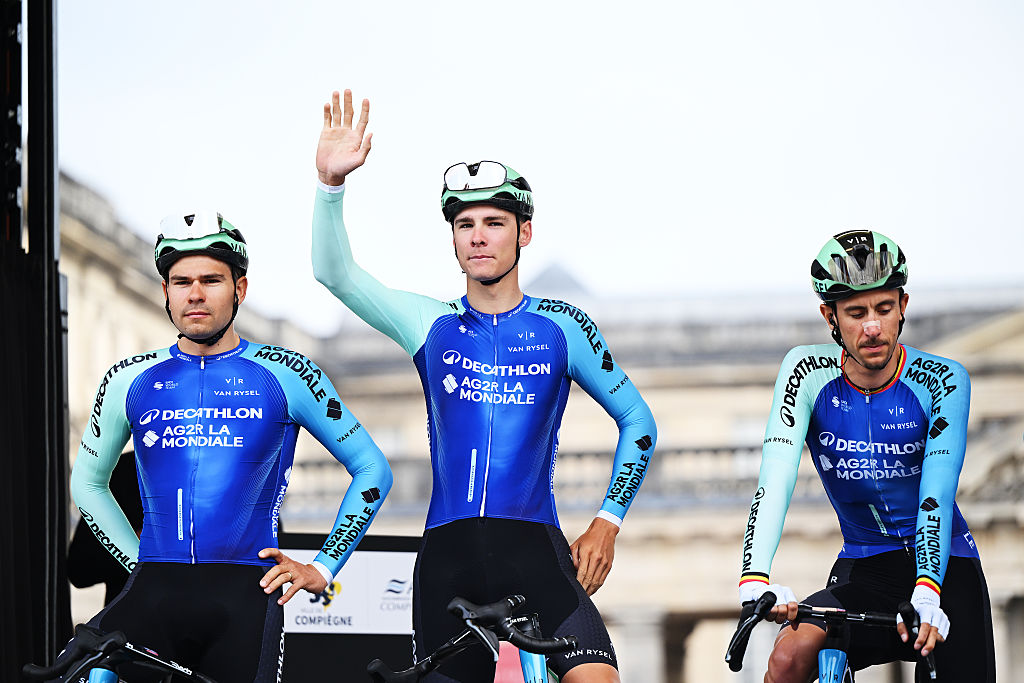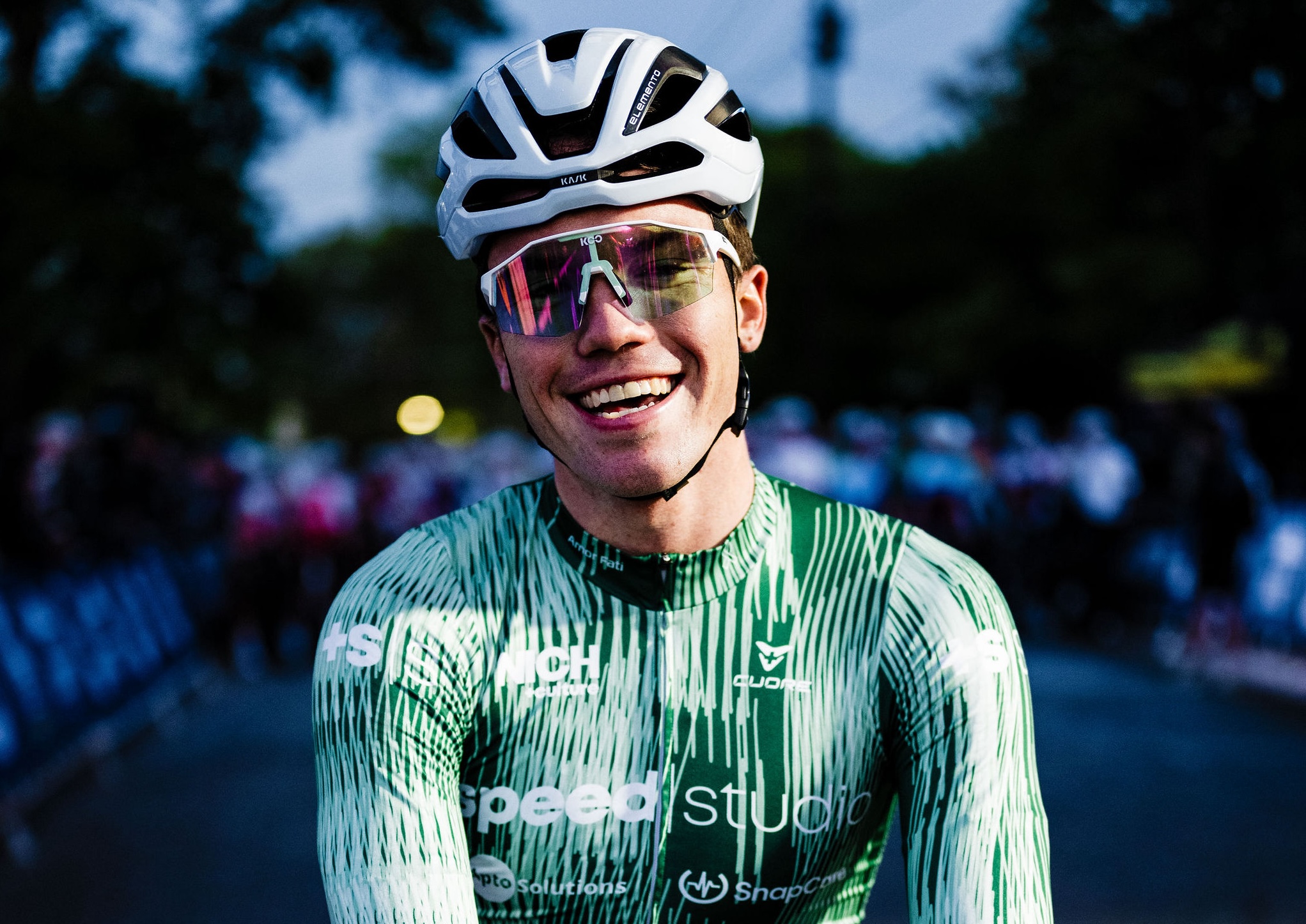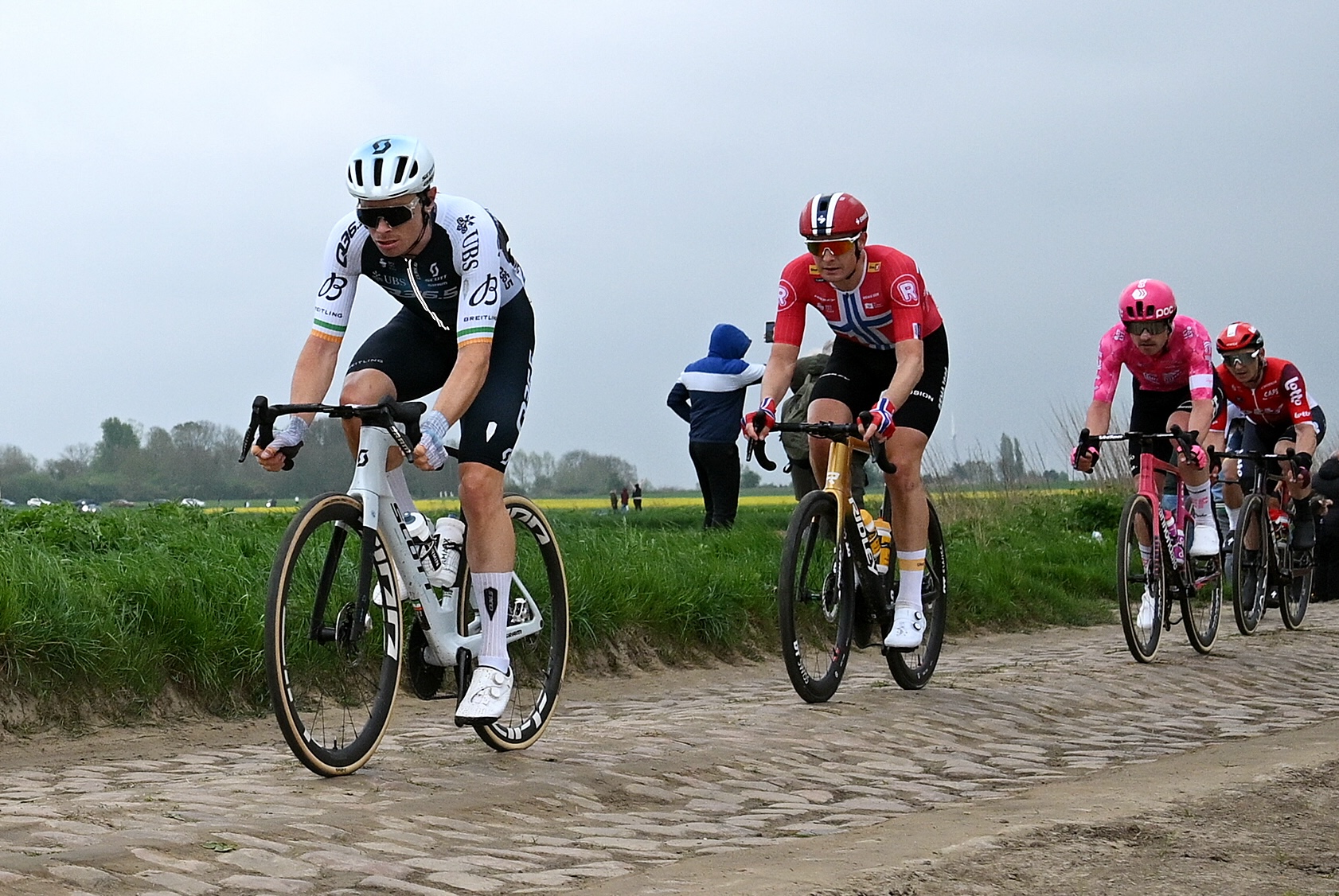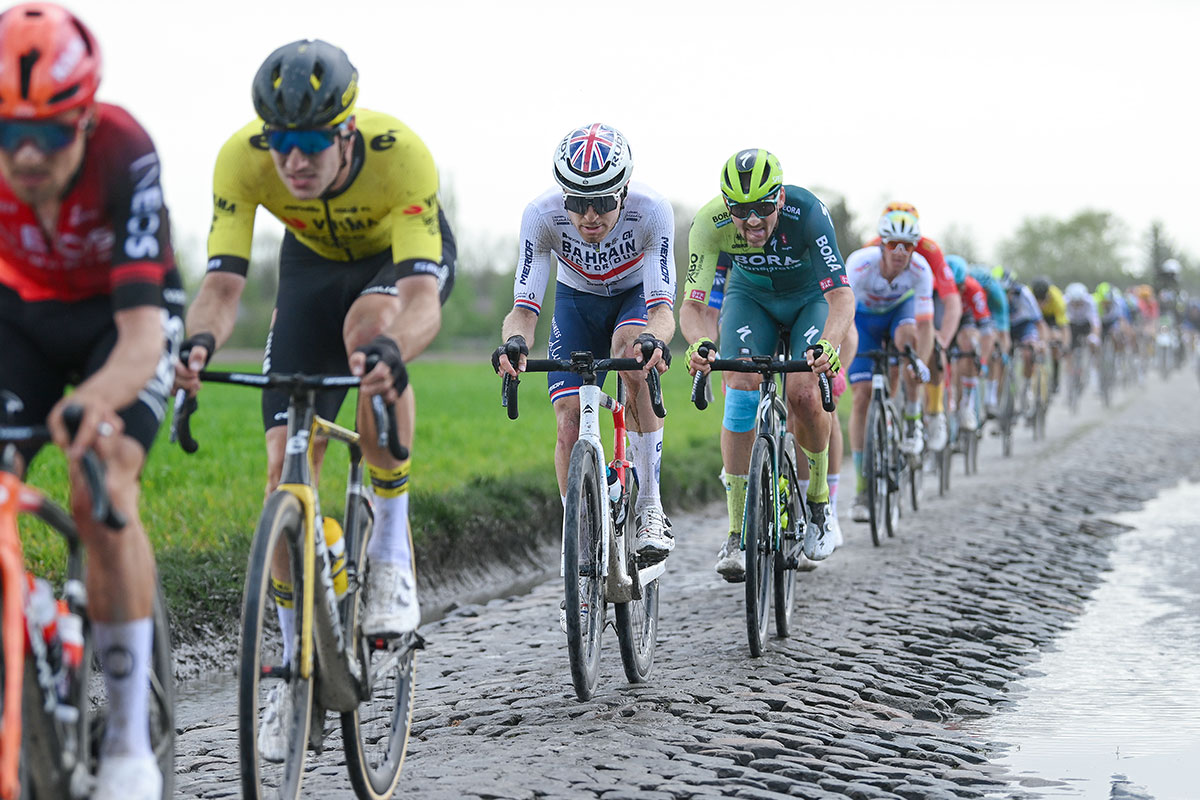Pogacar, Vingegaard and a duel far too close to call - Tour de France 2023 Preview
Overwhelming favourites on another level to all-comers in July
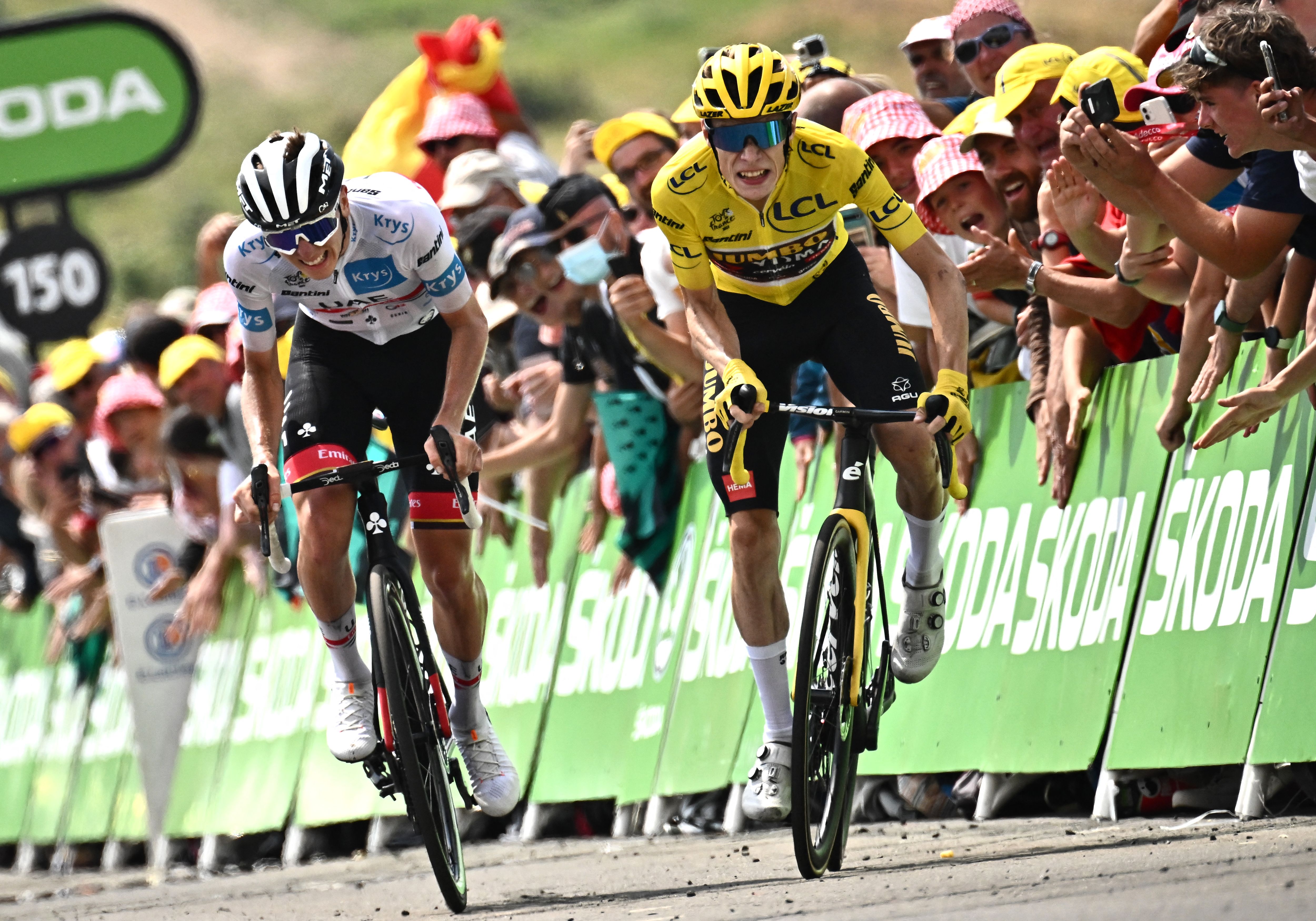
It’s too close to call, and that only makes opinions more entrenched. The only thing everyone can agree on with any certainty is that Jonas Vingegaard and Tadej Pogačar are the two overwhelming favourites to win the 2023 Tour de France. Beyond that, it’s anyone’s guess.
Every argument in favour of Vingegaard’s chances can be countered with the most watertight reasoning on Pogačar’s behalf, and vice-versa. Pogačar’s defeat of Vingegaard at Paris-Nice in March seemed to nudge the swingometer in the Slovenian’s favour. His broken wrist at Liège-Bastogne-Liège and Vingegaard’s performances since, however, have centred the needle again.
Much of the history of the Tour has been written in duels, but few have felt as delicately poised as this one. Indeed, many of the race’s defining duels have, on closer examination, been rather lopsided affairs: a serial winner overcoming a compliant eternal second here, a paragon of consistency outlasting a mercurial talent there.
The Pogačar-Vingegaard contest doesn’t fit those archetypes. They have won a Tour apiece in their head-to-head meetings of the last two years, and they have also both proved to be remorseless winners across the rest of the calendar. Each man’s relentlessness is his calling card. Like Messi and Ronaldo or Federer and Nadal, they seem to be pushing one another towards new extremes.
Even though Pogačar arrives at this Tour with a dozen wins to his name in 2023, after one of the greatest Spring campaigns in the history of the sport, Vingegaard hasn’t been entirely eclipsed. The Dane has mopped up eleven wins of his own, including two WorldTour stage races, all while giving the disarming impression that he could well move up another gear or two in July.
At times, they seem to ride as though gravity were no longer what it used to be. Pogačar, whose default setting is all-out attack, has a more obviously restless and dramatic style than Vingegaard. His accelerations rarely surprise his opponents, even from long distance, but they almost always overwhelm them. In spring, his every race seemed to bring a new masterpiece.
Vingegaard has tended to take a more conventional approach, letting his Jumbo-Visma squad dictate terms before he finishes off their work. On occasion, it looks almost routine. On closer inspection, it’s anything but. At the Critérium du Dauphiné, for instance, it was sobering to note that he pulled away from his rivals without climbing from the saddle and, on occasion, seemingly without even noticing it.

The two favourites, in other words, inhabit a different reality to just about everybody else in this race. But what can separate them across the forthcoming 23 days in July?
In the aftermath of Vingegaard’s victory last year, a narrative seemed to take hold that the Dane had come out on top largely because of the strength of his team. Jumbo-Visma’s depth was certainly a factor, but it’s reductive in the extreme to put his win down simply to the help of Wout van Aert, Primož Roglič et al. Vingegaard was isolated and outnumbered by UAE Team Emirates on the road to Peyragudes, after all, and he still resisted Pogačar’s onslaught.
Another school of thought wondered if Pogačar had made errors, either of preparation or of strategy. Sprinting for every signpost from Copenhagen to Paris seemed to catch up with him in the end, but then again, it’s not as if Vingegaard was a mere spectator in that breathless opening week. He followed Pogačar everywhere and then outlasted him. His victory was complete.
Pogačar is the best and most complete rider of his generation, and thus a logical favourite for the biggest bike race of them all – but that doesn’t guarantee him victory in Paris, not least when Vingegaard on a mountain pass in the white heat of July has often appeared to be his kryptonite.
At last year’s Tour, Pogačar attacked relentlessly but never once succeeded in dropping Vingegaard uphill. In 2021, meanwhile, Pogačar forged his overall victory with two solo exhibitions on sodden days in the Alps, but he couldn’t shake off Vingegaard again once the temperatures soared in Provence and the Pyrenees.
In that light, Pogačar perhaps gained some useful reassurance by putting Vingegaard to the sword so convincingly at Paris-Nice in March. If he hadn’t managed to drop the Dane there, he might have begun to develop a complex. For Vingegaard, on the other hand, it was perhaps a timely reminder that Pogačar was beaten last July, but certainly not conquered. He hasn’t gone away.
Indeed, Pogačar has strengthened his supporting cast considerably for 2023 with UAE Team Emirates’ signing of Adam Yates. Vingegaard, on the other hand, will race without Roglič, such a pivotal figure on the decisive Col du Granon stage a year ago, though Jumbo-Visma remain a most imposing collective force, including last year’s key man Van Aert.
Pogačar’s wrist injury and lack of racing since late April clouds the picture a little further, of course, even if the mood music emanating from the UAE Team Emirates camp has remained upbeat. “You don't need a wrist to train the legs,” Pogačar smiled during a press conference in early June. “We will see when the Tour goes, but I think I will enjoy it in any case.”
A week later, after Vingegaard had run through his scales so convincingly at the Dauphiné, Jumbo-Visma directeur sportif Merijn Zeeman saw little point in paying lip service to the riders he defeated in the Alps. The only yardstick for Vingegaard is Pogačar. “These two guys are so strong that they seem like they’re on another level,” Zeeman said.
All evidence suggests they will be again this July.

The challengers
Pogačar and Vingegaard won’t race in a vacuum in July, but even the other riders vying for the podium are pragmatic about their prospects of contesting the yellow jersey. Or, as Ben O’Connor (AG2R-Citroën) put it after placing third overall at the Dauphiné: “If Jonas is racing like this – good luck!”
O’Connor, fourth overall in 2021, looks on course for a solid Tour, as does his fellow Western Australian Jai Hindley (Bora-Hansgrohe), who is making his Grande Boucle debut after focusing – very successfully – on the Giro d’Italia to this point in his career.
The relative dearth of time trial kilometres and the sheer volume of climbing presents Hindley with a golden opportunity to claim a podium spot, but Pogačar and Vingegaard may present a glass ceiling for him and for everybody else. It’s worth noting, too, that even if either of the two favourites fall victim to ill fortune early on, their own teams still have riders with podium potential in Adam Yates and Wilco Kelderman.
David Gaudu (Groupama-FDJ), fourth a year ago, sets out with podium ambitions but he was a long way off the pace at the Dauphiné. The presence of Thibaut Pinot, sure to garland his final Tour with aggressive racing, diverts much of the attention but does little to alleviate the pressure.
After a sparkling Spring, Mikel Landa (Bahrain Victorious) was subdued at the Dauphiné, but he won’t want for motivation at a Tour that sets out from his native Basque Country. The other Spanish contender, Enric Mas (Movistar) also fell well short at the Dauphiné, but he has the useful habit of being reliably solid, if unspectacular, over three weeks.
Romain Bardet’s window to win a Grand Tour may have eased shut, but the DSM rider has an ideal route this year, and he might be inspired, too, by how Geraint Thomas’ resilience carried him to the podium in 2022. Tour de Suisse winner Mattias Skjelmose (Trek-Segafredo) may have jokingly referred to his Tour debut as a “three-week vacation,” but in the same breath, the Dane also confirmed that he will be targeting GC. The 22-year-old will be worth following closely in July.
Elsewhere, Simon Yates (Jayco-Alula) and Richard Carapaz (EF Education-EasyPost) have obvious pedigree, but the Briton’s long absence and Ecuadorian’s recent anonymity are obvious grounds for concern as July looms near. EF will be glad to have Neilson Powless, one of the season’s outstanding performers, in their ranks.
The biggest question marks, however, hover over the team who so dominated this race in the last decade. Ineos Grenadiers have been the best of the (admittedly distant) rest behind Pogačar and Vingegaard for the past two years, but they enter the 2023 Tour with precious few guarantees. 2019 Tour champion Egan Bernal makes a most welcome return after his life-threatening crash last year, but he may have to wait another twelve months before mounting an overall challenge.
His compatriot Daniel Martínez is notionally Ineos’ leader for the GC, but his season has lost momentum since his Volta ao Algarve victory in February, and now Carlos Rodríguez offers an alternative. Tom Pidcock has designs on Tour victory in the future, but that time has not yet come, and the Briton seems minded to target the first yellow jersey here. The last one, however, seems out of reach for all bar Pogačar and Vingegaard.

Sprinters and attackers
As ever, the Tour is about much more than the fight for final overall victory. After feeding on rather meagre portions in 2022, the sprinters look set to have rather more opportunities this time out, even if the days of the fast men claiming full ownership of the opening week of the Tour have long since ended.
Jasper Philipsen (Alpecin-Deceuninck), Fabio Jakobsen (Soudal-QuickStep) and Dylan Groenewegen (Jayco-Alula) all seem up to speed ahead of the Tour, but the field here is the deepest of the season. Caleb Ewan (Lotto-Dstny) and Sam Bennett (Bora-Hansgrohe) both know a win in July can put a different complexion on their trying campaigns, while Mads Pedersen (Trek-Segafredo) and Biniam Girmay (Intermarché-Wanty-Gobert) have the ability to withstand rugged terrain better than most. Alexander Kristoff will look to lay down a marker for debutants Uno-X and Peter Sagan (TotalEnergies) will try to sign off on his Tour career with a victory.
Much attention, of course, will focus on the efforts of another retiring rider. Mark Cavendish (Astana-Qazaqstan) already shares the record for Tour stage wins (34) with Eddy Merckx, and the confidence of the Manxman will surely have been buoyed by his victory on the final day of the Giro.
The pure fast men, however, will also have to reckon with Wout van Aert, whose versatility is well flagged by now but no less astounding. Who else could win a bunch sprint and drop Pogačar on a mountain pass in the same Tour? The Belgian insists that the green jersey is not a target this time, but it would be a surprise if he didn’t adorn his race with some striking cameos, starting in the opening days in the Basque Country.
The punchy terrain at this Tour, in Bilbao and beyond, also lends itself, of course, to his eternal rival Mathieu van der Poel (Alpecin-Deceuninck), so impressive at the Belgium Tour, and perhaps to Julian Alaphilippe (Soudal-QuickStep), who secured a morale-boosting stage win at the Dauphiné.
Their approach will dictate much about how the opening week unfolds. Pogačar and Vingegaard, inevitably, will be primed for what opportunities might arise along the way.
The route
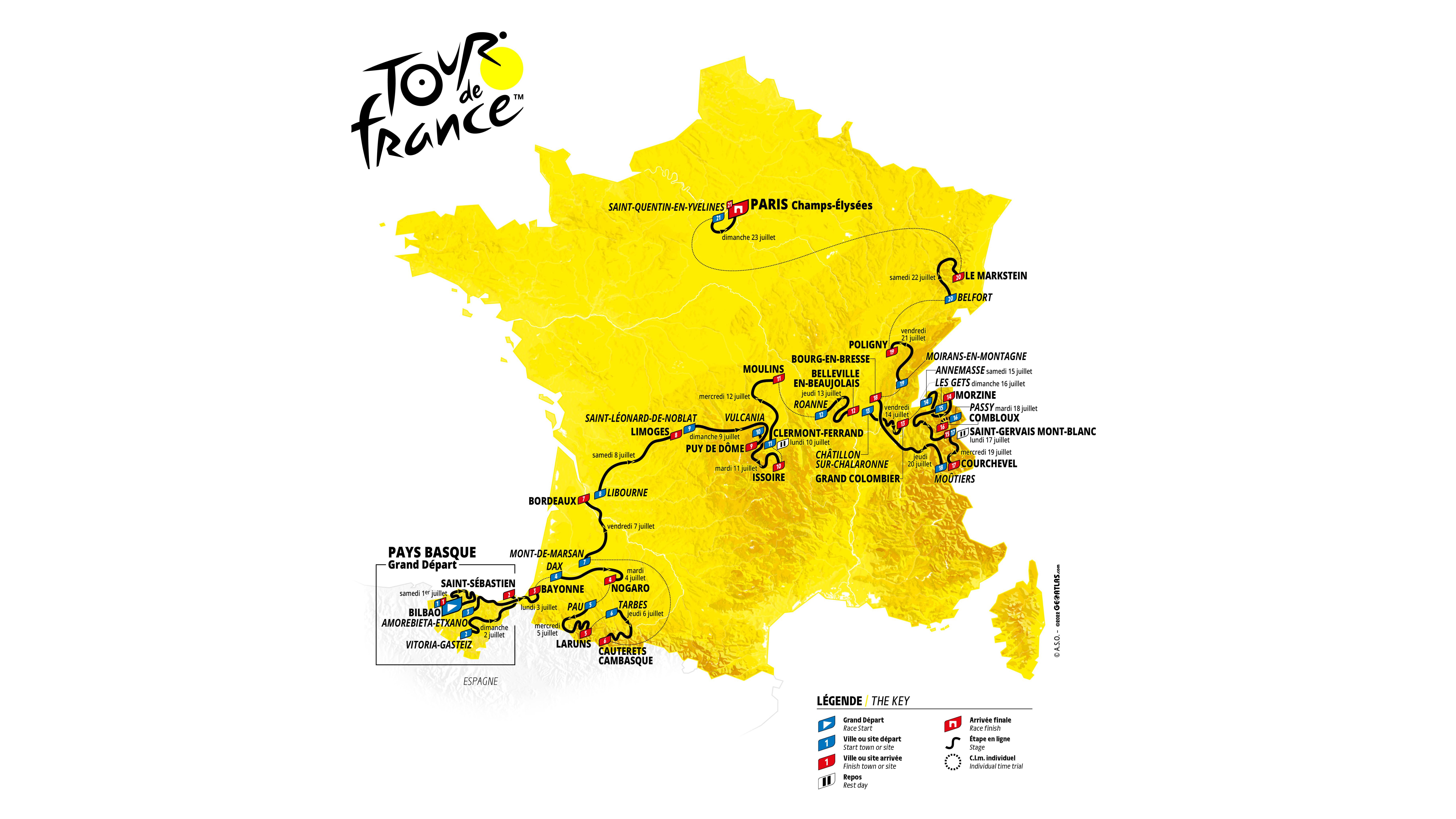
The contest between Pogačar and Vingegaard may be minutely balanced, but the route of this Tour is certainly not, with a mere 22.4km of time trialling on a course laden with mountains. The race’s long passage through the Alps, either side of the second rest day, looks likely to be the key to the final destination of the maillot jaune, though the potentially tumultuous stages that bookend the Tour are engineered to breathe drama into the opening act while maintaining suspense to the very end – the most delicate balancing act of all.
31 years after the Tour de France last started in San Sebastian, the Grand Départ returns to the Basque Country with Bilbao providing a dramatic backdrop for what’s likely to be a breathless opening stage, with some 3,300m of climbing on the menu. On this kind of terrain, the GC men will have to hit the ground running, while some notable puncheurs – Alaphilippe and Van der Poel among them – will expect to contest the first maillot jaune.
There’s scarcely any let-up on stage 2, where the Jaizkibel provides a springboard for attackers on the run-in to San Sebastian, before the sprinters eventually get a look-in when the race crosses to France for a finish on Bayonne on stage 3. They’ll have another chance in Nogaro the next day before the Pyrenees – the first of five mountain ranges on the parcours – come into view on stage 5 to Laruns, which includes the Col de Marie Blanque. After that taster, the peloton tackles the Col du Tourmalet on stage 6 ahead of the first summit finish on the Plateau du Cambasque, though the climb itself is long rather than particularly steep.
Another day for the fast men follows in Bordeaux, while Van der Poel will surely be inspired by the terrain and by the memory of his grandfather Raymond Poulidor on stage 8 to Limoges. The opening week concludes, meanwhile, with an evocative rendezvous, as the Puy de Dôme returns to the Tour after a 35-year absence. The volcano provided the denouement for Anquetil and Poulidor’s indelible 1964 duel. Here, it offers pointers for the road ahead.
The Tour resumes with a rugged haul through the Massif Central towards Issoire, an obvious sprint opportunity in Moulins and then a hilly run through the Beaujolais region before the race reaches the Alps for three consecutive mountain stages. First up is the summit finish on the Grand Colombier, which comes at the end of an otherwise short and flat stage 13. Expect Bastille Day fireworks.
There are five passes shoehorned into stage 14, including the Col de la Ramaz and the hors categorie Col du Joux Plane, which proceeds the fast descent into Morzine. Week two concludes by bringing the race over the Col de la Forclaz de Montmin, Col de la Croix Fry and the Col d’Aravis passes ahead of the two-part haul to the finish at Saint Gervais-Mont Blanc-Le Bettex, where Romain Bardet claimed stage victory in 2016.
The Tour’s lone time trial kicks off the final week, though the rolling, 22.4km test from Passy to Combloux is hardly one for pure rouleurs, given that it features the stiff Côte de Domancy in the finale. The most demanding day of the entire Tour follows on stage 17, which has some 5,000m of climbing on the agenda. The biggest obstacle is provided by the 2,304m-high Col de La Loze (28.1km at 6%), which precedes the short drop to the finish in Courchevel.
A respite of sorts follows, with flatter stages to Bourg-en-Bresse and Moirans-en-Montagne to Poligny, before the race makes the long transfer to the Vosges for a penultimate stage laden with menace. Stage 20 is only 133.5km long, but it features no fewer than six classified climbs for a total of 3,300m of altitude gain. There is precious little respite all day on the road to Le Markstein, and the finale, with the Petit Ballon (9.3km at 8.1%) and Col du Platzerwasel (7.1km at 8.4 %) could turn the Tour on its head before Paris. Pogačar and Jumbo know a bit about that too.
Get The Leadout Newsletter
The latest race content, interviews, features, reviews and expert buying guides, direct to your inbox!

Barry Ryan was Head of Features at Cyclingnews. He has covered professional cycling since 2010, reporting from the Tour de France, Giro d’Italia and events from Argentina to Japan. His writing has appeared in The Independent, Procycling and Cycling Plus. He is the author of The Ascent: Sean Kelly, Stephen Roche and the Rise of Irish Cycling’s Golden Generation, published by Gill Books.
Latest on Cyclingnews
-
‘That first sector, it's just bodies falling’ – Oscar Chamberlain soaks up debut Paris-Roubaix while providing spark of hope for Australian resurgence
One of just three riders from nation lining up to take on the brutal cobbled test, the second-youngest rider in race is first Australian across line in 82nd place -
USA CRITS: Michael Garrison wins Rock&Road Criterium well ahead of Lucas Bourgoyne
Shannon Koch leads trio of Kingdom Elite riders for sweep of women's podium in Newnan, Georgia -
The highs and lows of Paris-Roubaix: Rory Townsend makes the break for Q36.5 as Joey Pidcock rolls in last
Doug Ryder's squad experienced all the emotions at the Hell of the North -
Fred Wright overcomes Shimano Di2 crash mode, avoids late wrong turn to grab Paris-Roubaix top 10
Briton says his next goal will be 'working out how to not be the best of the rest' after career-best finish
